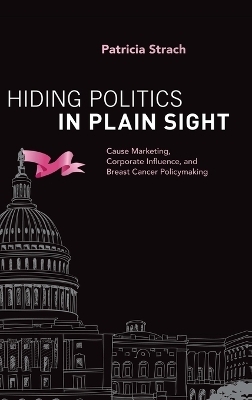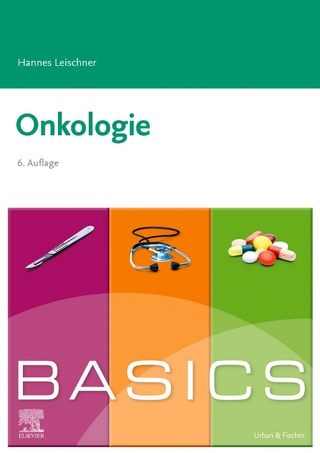
Hiding Politics in Plain Sight
Cause Marketing, Corporate Influence, and Breast Cancer Policymaking
Seiten
2016
Oxford University Press Inc (Verlag)
978-0-19-060684-8 (ISBN)
Oxford University Press Inc (Verlag)
978-0-19-060684-8 (ISBN)
Hiding Politics in Plain Sight examines the costs of market mechanisms, especially cause marketing as a strategy for change. Industry and corporate-connected individuals use market mechanisms to brand issues like breast cancer widely, shaping public understanding. But framed as consensus-based social issues rather than contentious political issues, they essentially hide politics in plain sight.
As late as the 1980s, breast cancer was a stigmatized disease, so much so that local reporters avoided using the word "breast" in their stories and early breast cancer organizations steered clear of it in their names. But activists with business backgrounds began to partner with corporations for sponsored runs and cause-marketing products, from which a portion of the proceeds would benefit breast cancer research. Branding breast cancer as "pink"--hopeful, positive, uncontroversial--on the products Americans see every day, these activists and corporations generated a pervasive understanding of breast cancer that is widely shared by the public and embraced by policymakers. Clearly, they have been successful: today, more Americans know that the pink ribbon is the symbol of breast cancer than know the name of the vice president.
Hiding Politics in Plain Sight examines the costs of employing market mechanisms--especially cause marketing--as a strategy for change. Patricia Strach suggests that market mechanisms do more than raise awareness of issues or money to support charities: they also affect politics. She shows that market mechanisms, like corporate-sponsored walks or cause-marketing, shift issue definition away from the contentious processes in the political sphere to the market, where advertising campaigns portray complex issues along a single dimension with a simple solution: breast cancer research will find a cure and Americans can participate easily by purchasing specially-marked products. This market competition privileges even more specialized actors with connections to business. As well, cooperative market activism fundamentally alters the public sphere by importing processes, values, and biases of market-based action into politics. Market activism does not just bring social concerns into market transactions, it also brings market biases into public policymaking, which is inherently undemocratic. As a result, industry and key activists work cooperatively rather than contentiously, and they define issues as consensual rather than controversial, essentially hiding politics in plain sight.
As late as the 1980s, breast cancer was a stigmatized disease, so much so that local reporters avoided using the word "breast" in their stories and early breast cancer organizations steered clear of it in their names. But activists with business backgrounds began to partner with corporations for sponsored runs and cause-marketing products, from which a portion of the proceeds would benefit breast cancer research. Branding breast cancer as "pink"--hopeful, positive, uncontroversial--on the products Americans see every day, these activists and corporations generated a pervasive understanding of breast cancer that is widely shared by the public and embraced by policymakers. Clearly, they have been successful: today, more Americans know that the pink ribbon is the symbol of breast cancer than know the name of the vice president.
Hiding Politics in Plain Sight examines the costs of employing market mechanisms--especially cause marketing--as a strategy for change. Patricia Strach suggests that market mechanisms do more than raise awareness of issues or money to support charities: they also affect politics. She shows that market mechanisms, like corporate-sponsored walks or cause-marketing, shift issue definition away from the contentious processes in the political sphere to the market, where advertising campaigns portray complex issues along a single dimension with a simple solution: breast cancer research will find a cure and Americans can participate easily by purchasing specially-marked products. This market competition privileges even more specialized actors with connections to business. As well, cooperative market activism fundamentally alters the public sphere by importing processes, values, and biases of market-based action into politics. Market activism does not just bring social concerns into market transactions, it also brings market biases into public policymaking, which is inherently undemocratic. As a result, industry and key activists work cooperatively rather than contentiously, and they define issues as consensual rather than controversial, essentially hiding politics in plain sight.
Patricia Strach has a dual appointment as Associate Professor in the Departments of Political Science and Public Administration and Policy at the University at Albany, State University of New York
Acknowledgments
Chapter 1 Introduction
Chapter 2 Foundations: Cause Marketing, Breast Cancer, and Framing in America
Chapter 3 Cooperative Market Mechanisms
Chapter 4 Telling Stories
Chapter 5 Effects
Chapter 6 Defining Issues: Breast Cancer and the Creation of Consensus Politics
Chapter 7 Hiding Politics in Plain Sight
Appendix A Model Details for Chapter 3
Appendix B Regression Results for Chapter 5
Appendix C Notes on Methodology and Sources
Appendix D Citizen Consumer Survey
Notes
References
Index
| Erscheinungsdatum | 05.10.2016 |
|---|---|
| Verlagsort | New York |
| Sprache | englisch |
| Maße | 239 x 157 mm |
| Gewicht | 499 g |
| Themenwelt | Medizin / Pharmazie ► Medizinische Fachgebiete ► Onkologie |
| Sozialwissenschaften ► Politik / Verwaltung ► Staat / Verwaltung | |
| Sozialwissenschaften ► Soziologie ► Gender Studies | |
| Wirtschaft ► Betriebswirtschaft / Management ► Marketing / Vertrieb | |
| ISBN-10 | 0-19-060684-3 / 0190606843 |
| ISBN-13 | 978-0-19-060684-8 / 9780190606848 |
| Zustand | Neuware |
| Haben Sie eine Frage zum Produkt? |
Mehr entdecken
aus dem Bereich
aus dem Bereich
Korrigierter Nachdruck 2020 mit allen Ergänzungen der UICC aus den …
Buch | Softcover (2020)
Wiley-VCH (Verlag)
42,90 €
Resilienz innovativ stärken : ein Praxishandbuch
Buch | Softcover (2023)
Kohlhammer (Verlag)
36,00 €


